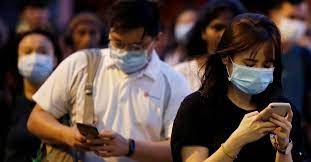Vaccination after COVID improves immunity; ivermectin fails in major trial
(Reuters) – The following is a summary of some recent studies on COVID-19. They include research that warrants further study to corroborate the findings and that has yet to be certified by peer review.Vaccination after COVID-19 improves immunityAlthough people who recover from COVID-19 usually gain some immune defenses against reinfection, they get additional protection from vaccines, especially against severe disease, according to two studies published on Thursday in The Lancet Infectious Diseases.One study here of 22,566 people in Brazil who had recovered from COVID found that all four vaccines in use there – from Sinovac Biotech, AstraZeneca, Johnson & Johnson, and Pfizer/BioNTech – provided significant additional protection. Effectiveness against infection starting 14 days after vaccination completion ranged from 39.4% for Sinovac’s CoronaVac to 64.8% for the Pfizer/BioNTech shots. Effectiveness against hospitalization or death ranged from 81.3% for CoronaVac to 89.7% for Pfizer/BioNTech’s vaccine.The second study here, using data from more than 5 million people in Sweden, found that “hybrid immunity” from a combination of previous infection and receipt of either one or two doses of a vaccine provided additional protection for at least nine months. “One-dose hybrid immunity was associated with an additional 94% lower risk of COVID-19 hospitalization, and two-dose hybrid immunity with an additional 90% lower risk of COVID-19 hospitalization,” compared to natural immunity alone, the researchers said. Neither study included patients infected or reinfected with the Omicron variant.Ivermectin fails, convalescent plasma succeedsTwo gold-standard trials published in The New England Journal of Medicine on Wednesday help settle questions about two controversial therapies touted by many early in the pandemic with decidedly mixed results – failure for the antiparasite drug ivermectin and success for antibody-rich blood plasma from COVID-19 survivors.In Brazil, 3,515 patients with symptoms of COVID-19 for a week or less and at least one risk factor for serious disease were randomly assigned to receive ivermectin once daily for three days, another treatment, or a placebo. Four weeks later, ivermectin failed to lead to a lower rate of hospitalization or prolonged emergency room visits, the researchers reported here. The horse dewormer was popular with conservative commentators and anti-vaccine people despite warnings from health officials not to use it to treat COVID.For the study of so-called convalescent plasma, U.S. researchers enrolled more than 1,000 mostly unvaccinated adults within eight days of the onset of COVID-19 symptoms. Half of the participants were randomly assigned to receive a convalescent-plasma transfusion. Four weeks later, 2.9% of those who received the plasma had been hospitalized for COVID-19, compared to 6.3% of those who did not receive it. After accounting for individuals’ risk factors, the treatment reduced the risk of hospitalization by 54%, the researchers said here. “COVID-19 convalescent plasma is available in low-income and middle-income countries, has no patent limitations, and is relatively inexpensive to produce … (and probably) less vulnerable to the emergence of antibody resistance,” they added.Omicron infects more small children, but less harmfullyAmong children under age 5 who were ineligible for coronavirus vaccines, the Omicron variant caused 6- to 8-times more infections than the Delta variant, but severe COVID-19 was less common with Omicron, U.S. researchers found.They reviewed data collected in 2021 and early 2022 on 651,640 children younger than age 5, including 66,692 with Delta infections and 22,772 with Omicron infections. When Delta was predominant, two to three children among every 2,000 became infected every day, the researchers calculated. When Omicron first started to circulate, that rate rose to roughly five to 13 new infections per day among every 2,000 children, the researchers reported on Friday in JAMA Pediatrics here. By mid-January 2022, more than 16 of every 2,000 small children were becoming infected with Omicron every day, with the highest infection rates seen in children under age 2.Children infected with Omicron, however, were at significantly lower risk for severe disease compared to similar children infected with Delta. The findings may aid considerations about school attendance, mask use, and vaccine implementation for young children, the research team said.












